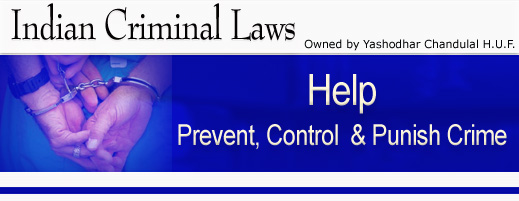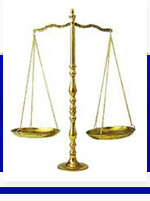A crime is a harmful act or omission. It strikes at the very roots of a civilized society. It delivers only bitter fruits. Its impact covers an area wide enough to include insecurity, fear, deprivation, untold miseries, destruction and even death. It covers all- from few individuals to groups to millions or even whole society.
A crime therefore is thus a real threat to a civilized society. Every civilized society is, therefore, justified in securing protection against itself. It does so by enacting laws prohibiting such acts and omissions on the part of a wrong doer.
Through laws the society itself, in serious crimes, becomes a complainant; it investigates every crime through its agency called police; its police seeks cooperation from members of public by expecting them to come forward and state what they know about the crime and call them as witnesses in court of law; its police arrests persons who are found in its investigation accused of committing such crimes; on completion of investigation its police decides whether to charge them for the alleged crime or not; on deciding to press the charge further against the accused persons the matter then is transferred to the prosecuting agency that protects society’s interests by representing it in a court of law; it thus makes the accused stand trial in a court of law. It is the court of law that decides by conducting trial and delivering its judgments whether the accused persons are guilty or not and accordingly either punish them or acquit them. |





